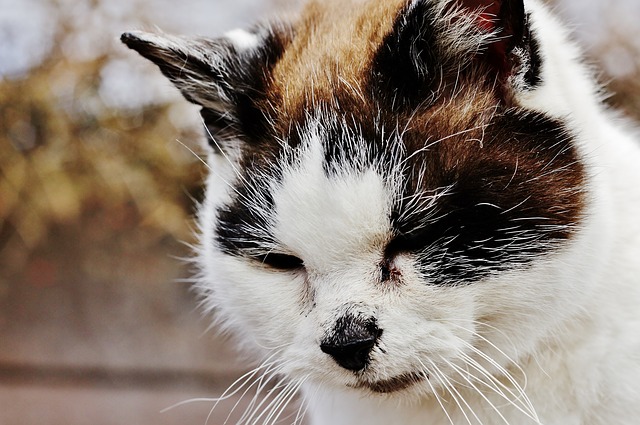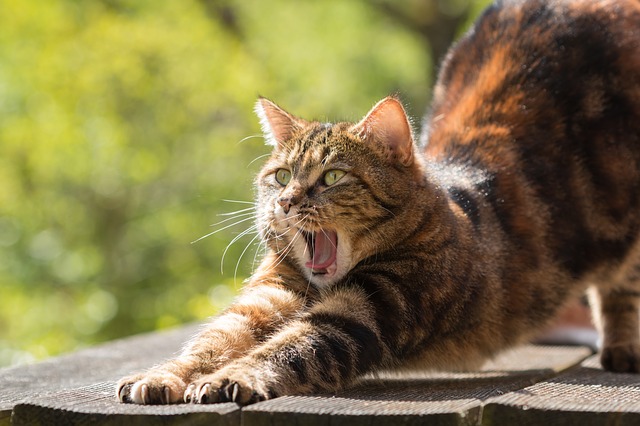We think indoor cats are safe from so much, but they can still get sick. Here are the top 5 reasons that I see our shielded indoor companions.
1. Urinary Complaints
Urinary issues range from inappropriate urination (outside the litter box) to urinary obstruction and are a common presenting complaint for my indoor-only patients. Cats may choose to urinate outside of the litter box because they associate the litter box with pain from illness or for behavioral reasons.Because inappropriate urination can be medical or behavioral, it is important to see a veterinarian. We have expertise in managing this extremely common problem.

2. Chronic Renal (Kidney) Disease
I see feline patients affected with this disease very regularly. Diagnosis requires blood and urine tests and a thorough examination because cats may not seem very ill outwardly . The signs are fairly subtle early in the disease, including increased thirst/urination and weight loss. If renal disease is diagnosed early and appropriately managed, you can add 1 to 3 years to your cat’s life versus an untreated cat. No one has a proven theory for why cats seem to be over-represented for this disease, but your veterinarian can prescribe dietary management, as well as medications to help delay the progression of disease.
3. Upper Respiratory Signs
Upper respiratory signs, like coughing and sneezing are routinely seen in cats. Even cats that never go outside are at risk because infectious causative agents can be carried in by humans or other pets that do go outside. Sometimes the coughing and sneezing are signs of issues that are not infectious. Cats certainly can have allergic disease, asthma and bronchitis. Your veterinarian can help you uncover the cause of your cat’s cough or sneeze and prescribe appropriate treatment

4. Lameness/Stiffness
Cats can suffer from joint pain just like any mammal, but they are so good at hiding disease, sometimes we miss it. Occasionally, the only symptom is urinating outside the litter box because it hurts to climb over the sides. Sometimes, your cat will just seem to choose new resting places and it may not occur to you that it hurts her to jump or climb to the old one. Cats tend to be very sensitive to medications, so it is critical to include your veterinarian in any medication choice. Watch your cat for subtle changes in the places he rests or plays. You know your cat and they love routine. A change could be significant.
5. Vomiting
It seems like all cats vomit sometimes, but any vomiting that recurs or continues is not normal. If vomiting goes along with other signs of disease like lethargy or anorexia, it is more likely to require veterinary care. Cats can (and do) consume things that are not eatable, like string or rubber hair bands and these objects will cause vomiting. Indigestible items are considered foreign bodies and may require emergency surgery. Your veterinarian will be able to help you determine what could be causing your cat to vomit.
Keeping a cat in the house all the time certainly protects him from lots of things, but he can still need to see a vet. It is easier to observe changes in your cat when they are with you inside, so if you notice any of the above concerns, please do not hesitate to see your own vet.
